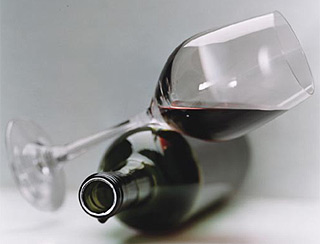My friend Jennifer invited me to join a conversation on “why more chefs/foodies don’t know much about wine.” I didn’t write her back about it, mainly because I knew I wasn’t going to say thoughtful things.
If I were going to be thoughtful about it, there was a lot to think about: how the brain works, how people learn, how people taste, geography, language. But the question irked me, and I knew I would end up answering from my gut.

First, it’s because food geeks are insufferable, but wine geeks are TOTALLY insufferable, and most people try to limit their insufferability. Once, at dinner with a real winie (if I’m forced to answer to ”foodie”, it’s only fair to call them “winies,” right?) I took a bite of peas and exclaimed, “Oh my God… that tastes so much like pea!” Kind of annoying, sure. But then my winie friend took a bite and said, “Yeah… it tastes like pea skins.”
Second, have you read any wine tasting notes lately? Yeah, I don’t blame you. Last time I picked up a wine magazine, I realized that I can’t really blame my pea-skin loving friend. Hey, I understand how hard it is to talk about what something tastes like—we really don’t have much of a vocabulary for it. But when I read that a wine has “subtle touches of boysenberry hidden in a core of black currant, enveloped by cassis,” I wonder: Who just stopped caring about this? Everyone. Who knows the difference between black currant and cassis? No one. Most importantly, who doesn’t want to feel like they’re failing a test every time they raise a glass and still can’t find the boysenberry? Gee, I don’t know. You tell me.
Third, and I’ll say this at the risk of losing all my credibility in the gastronomic world: WINE IS NOT AS IMPORTANT AS FOOD. It’s just not. And I think that’s why I was grouch about the question in the first place—it suggests that “foodies/chefs” should know more about wine than they do, probably as much as they do about food. Well yeah, people should aspire to know more about everything, but the question is a little like asking, “Why don’t people who are really into cars know more about windshield wipers?”
Despite what oenophiles will tell you, wine is not central to food. To wit: all of the food cultures that have developed without wine: Hello, Muslim world! Hello, Asia! Hello, Mexico! It always kills me a little when people wring their hands about pairing wines with a Chinese dinner—“NYYAAA… they bring out all the food at once! Nyyaaaa, how can you pair a wine with so many different dishes, nyyaaa… ” Hey, guess what? The Chinese seem to have been able to have a nice time with their food for oh, about 5000 years. You can probably enjoy your next hour and a half. Have some tea and relax. You people are taking this way too seriously.
Don’t get me wrong—wines can have fascinating stories, drinking wine (yes, particularly with food) is often a wonderful experience, and thinking about it can often reveal great lessons. I’ve learned lots about tasting food from tasting wine. And I personally love learning about wine, about grapes, about terroir.
But it’s a real problem that the idea of “knowing” wine means that you’ve memorized grapes and vintages, or that you know to look for the grapefruit, chalk, and sea salt in your glass of Pouilly-Fumé. These things might matter, but the bigger question, I think, is not how to get people to name the 13 varietals in Chateauneuf-du-Pape, but how to get people excited about trying something new, something good. If people get excited about trying new wines, they’ll have more sensory experiences to draw from; they’ll learn flavors with their mouths. In turn and in time, they’ll learn the words and the maps because the impulse to learn will come from within, it will come from the gut. Or that’s what I might say if I were going to be thoughtful about this.



 Pinterest
Pinterest


